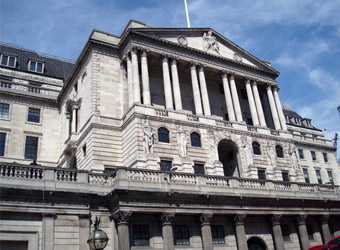British inflation surprisingly slowed for the first time since October until June, adding to the likelihood that the Bank of England will keep interest rates at a record low in August.
Consumer prices rose by 2.6 percent compared with a year earlier, the Office for National Statistics said on Tuesday, down from a nearly four-year high of 2.9 percent in May.
Economists had expected the rate to remain unchanged. The fall was the sharpest between any two months since February 2015, largely reflecting a fall in global oil prices, and there were signs of slowing price pressure in factories.
However, many economists have said they expect inflation to pick up again soon, adding to the strain on households which are seeing salaries rise more slowly than prices.
Britain’s inflation rate has risen sharply since last year’s referendum decision to leave the European Union which pushed down the value of the pound, making imports more expensive.
The BoE has been taken by the surprise by the speed of the increase this year. Its most recent forecasts saw inflation peaking at 2.8 percent later in 2017 while most economists have said they expect inflation to reach at least 3 percent.
The BoE did accurately predict that inflation in June would be 2.6 percent. The BoE has so far chosen not to respond by raising rates, saying the Brexit hit to the pound is likely to be temporary.
However, some officials at the central bank signaled recently that a rate hike might be on the way. Three of the BoE’s eight rate setters voted to raise rates in June although one of the dissenters has since left Governor Mark Carney has said higher borrowing costs would probably be needed if the economy overcomes its slowdown of earlier this year and wages – which are lagging behind inflation – grow more strongly.
The BoE is due to announce its next decision on interest rates on Aug. 3. A Reuters poll of economists published on Tuesday showed the BoE was expected to keep rates on hold throughout 2017 and 2018, as it waits to see if wages catch up with price rises and how the economy copes with the approach of Brexit.
The ONS said the pace of growth in the consumer price index for June was pushed down by fuel prices after a fall in global oil prices which was accentuated by a partial recovery in the value of the pound last month.
A drop in the cost of computer games and equipment, which pushed up inflation in May, was also a factor.
Retail price inflation – tracked by British inflation-linked government bonds – slowed to 3.5 percent in June from 3.7 percent in May.
The ONS said excluding oil prices and other volatile components such as food, core consumer price inflation slowed to 2.4 percent, compared with economists’ expectations for it to remain at 2.6 percent.
The ONS said a measure of consumer prices which includes a wider range of housing costs, the CPIH, edged down to 2.6 percent from 2.7 percent. Data on factory gate prices suggested that the most intense pressure on consumer prices is easing.
Output prices rose at their slowest rate since December of last year, up 3.3 percent, in line with the Reuters poll. Prices paid by factories for materials and energy rose at their slowest rate since September, up 9.9 percent on the year.
Separately, the ONS said house prices in May rose 4.7 percent in annual terms compared with 5.3 percent in April.
Prices in London alone grew by 3.0 percent, the second-slowest pace among all regions of the United Kingdom, adding to signs of a weakening of the housing market in the British capital since last year’s Brexit vote.
Source: Reuters
